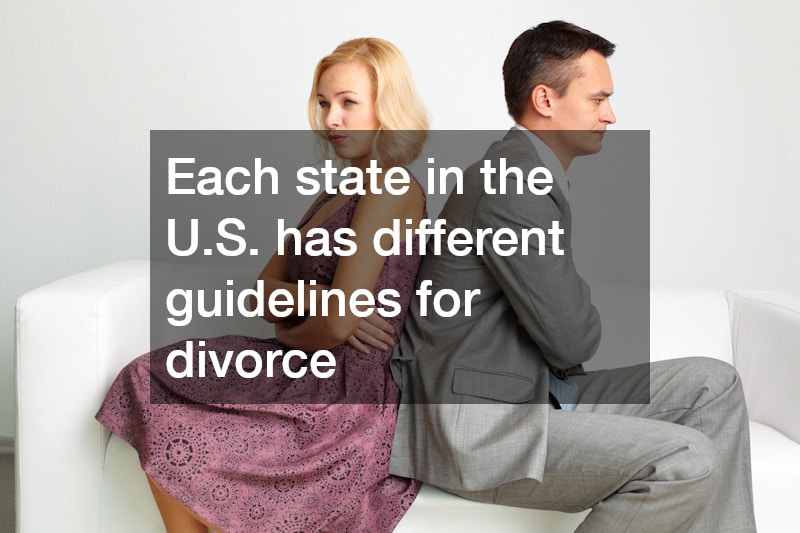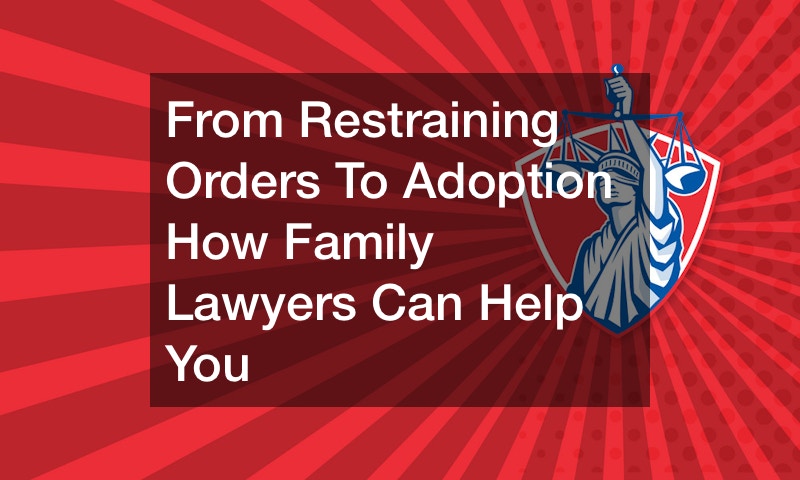
If you have decided to separate from your spouse, you should attempt to agree about dividing your assets. For example, most states will enforce a rule that each spouse can retain their premarital assets in divorce settlements. As for major mutual belongings, such as a house and a car, it may be best for both of you to agree before you go to court.
One of the best ways to get support during the pre-divorce process will be to call a local law firm. If you and your spouse signed a pre-nuptial agreement and agreed (before your marriage) on divorce assets prior to marriage, the prenuptial agreement will become part of your divorce agreement. If you and your spouse have children, their custody may be the most difficult area to navigate, but your attorney will help you make decisions.

Each state in the U.S. has different guidelines for divorce, and your lawyer will know the guidelines in your state. Some states will have special regulations, like communal property (often called community property) guidelines. If either party wants the divorce finalized but can’t reach a settlement agreement, the court can grant a divorce without splitting assets. Make sure you do the necessary research when looking for the right law firm for you.
If you require legal assistance, you should find a good personal family lawyer to help you with your case. They’ll give you the help that you need by ensuring that you know what to do as well as what to expect from the process. Divorce attorneys are the right experts to call if you’re going through a divorce, and a family lawyer might tell you the same if you ask them.
You can get some more information on the details of this field by searching online with search terms like “is family law civil law?” and more. Once you know about the various family law practice areas, you may also learn about how to pick a family law attorney.

Working with the right and qualified professional can help you to get the best outcome and also maintain your peace of mind throughout the process. In the end, you’ll have learned things that you didn’t know previously, and these are things you can apply in the future if you’re ever in a similar situation. You can also help someone else who needs assistance or who is in a similar situation as you were in yourself using the information you’ll have gathered.

To choose a family lawyer is no simple task — it takes a lot of time and effort. Unfortunately, many find themselves choosing the first local attorneys that they come across; and this ends up coming back to bite them. You shouldn’t choose a family lawyer based simply on how much they charge or even what law school they attended. Rather, you should choose a family lawyer based on a combination of their qualifications, their personality and emotional involvement, and their experience. You should be able to find out about your potential lawyer’s experience through reviews from past clients — and if the lawyer you’re considering is a good one, positive reviews shouldn’t be difficult to come by. (For that matter, nor should negative reviews if they’re a bad attorney.) A family law attorney can help you through a variety of different types of cases — whether they involve divorce or domestic violence, or even something positive, like an adoption. But one thing is for certain — once you choose a family lawyer, you’re making a commitment that could deeply affect the rest of your life. Below, we’ll look into what you should look for in this kind of lawyer, and how they can help you.
What Is A Family Lawyer?
First thing’s first: what is a family lawyer? A family law attorney is very different from a criminal defense attorney — although their jobs may intersect in surprising ways. Family law can encompass a number of different issues, and it affects virtually everyone, whether they know it or not. Most commonly, a family law attorney will deal with matters relating to divorce. However, they can help deal with virtually all issues relating to divorce, child custody, and adoption. Of course, a family lawyer also has to be familiar with issues including domestic violence statistics, and even DUIs — as these problems could affect how their cases move forward. For example, it’s estimated that each year 1.4 million people are arrested for their first DUI offenses — and if one parent has a DUI on their record, they may be considered a poorer custodial option compared to another parent. Family law attorneys can also deal with issues like emancipation, alimony, and restraining orders. They can also handle prenuptial agreements, postnuptial agreements, and even paternity cases.
What Is A Restraining Order?
Some people hire family lawyers because they feel that they need restraining orders of some kind. Restraining orders can be used in a variety of different contexts. They’re often associated with domestic abuse — in fact, many spouses often employ restraining orders during divorces, which is why family lawyers are often familiar with them. However, a restraining order can also be used in the context of elder abuse. Few fail to recognize exactly how great the issue of elder abuse has become in our country. In fact, there is a specific elder abuse restraining order that can be employed when a person is threatened or abused and is over the age of 65. It’s important, when choosing a lawyer, that you make sure that your attorney is well-versed in the exact issue that you’re dealing with. Of course, as previously mentioned, restraining orders are far from the only issues that family lawyers can confront. Family lawyers are also known for handling adoptions — and some types of adoptions can be more difficult to finalize than others.
How Do Family Lawyers Help With Adoptions?
Adoptions are more complicated than many realize, even when they’re handled domestically. Particular complex are the adoptions of Indian children. It’s estimated that prior to the institution of the ICWA, as many as 25%-35% of Indian children were placed in non-Indian homes. The ICWA, or the Indian Children Welfare Act, is a law that ensures that, if possible, Indian children are adopted by Indian families. It is possible for non-Indian families to adopt Indian children, but it’s difficult. However, a family lawyer should be used in any adoption case, whether or not it seems complicated from the outset.
